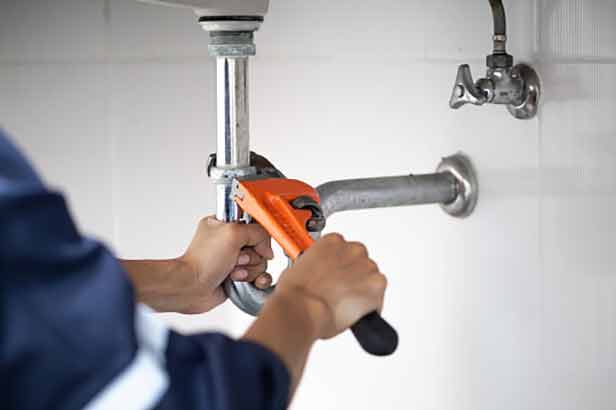As a homeowner, you’ll undoubtedly have plumbing issues every now and then. Some of these issues can wait while others are emergencies that require swift action. Unfortunately, not everyone can tell the difference between the two. Failing to recognize a plumbing emergency can lead to significant damages, which can be costly to repair. In this article, we’ll explore several plumbing issues that qualify as emergencies and others that you can wait until Monday to address.
The Signs of a Plumbing Emergency
While some plumbing issues can wait, some demand immediate attention. Do not hesitate to call an emergency plumber if you notice any of the following:
- A burst pipe: A burst pipe is a severe issue that requires immediate repairs. A burst pipe can cause extensive water damage and may flood your home.
- Sewage backup: A sewage backup may result in the waste backing up out of your pipes and into your home. It poses a severe health hazard that requires swift action.
- No hot water: A hot water shortage may indicate a more severe issue, such as a broken water heater. Your plumber can diagnose the issue and provide you with a solution.
- Frozen pipes: Frozen pipes can burst and cause significant damage. If you notice frozen pipes, call in a plumber immediately to prevent them from bursting.
- A Gas Leak: A gas leak is a severe issue that can result in a fire or explosion. If you smell gas or hear hissing, evacuate your home immediately and call your gas company and plumber.
Plumbing Issues That Can Wait Until Monday
Some plumbing problems aren’t emergencies but still require attention. These issues can wait, and you can schedule your plumber for repairs on Monday. Some of the common plumbing problems that fall under this category include:
- Dripping faucets: A dripping faucet may not seem like a big deal, but this can significantly increase your water bill, and the constant sound of dripping can be irritating.
- Clogged drains: Clogged drains are annoying, but they aren’t emergencies. Try to unclog the drain yourself, but avoid using chemical cleaners that can damage your pipes. If you can’t unclog a drain, consider calling a professional drain cleaning plumber.
- Low water pressure: Low water pressure could indicate a minor issue such as a clogged aerator or a pipe leak. A professional plumber can diagnose and fix the problem.
- Running toilets: If your toilet continues to run after flushing, it could be due to a damaged flapper or the fill valve that needs replacement. It’s not an emergency, but it’s essential to address it to prevent an increased water bill.

Schedule regular maintenance with your plumber. Regular maintenance can address minor issues before they escalate into serious emergencies.
Tips for Preventing Plumbing Emergencies
Prevention is better than cure, and that is why you should take steps to prevent plumbing emergencies. Here are some ways to prevent plumbing issues:
- Regular maintenance: Schedule regular maintenance with your plumber. Regular maintenance can address minor issues before they escalate into serious emergencies.
- Avoid flushing non-decomposable items: Flushing non-decomposable items such as wipes, feminine products, and paper towels down the toilet can clog your pipes, leading to severe plumbing issues.
- Protect your pipes during winter: During winter, your pipes are susceptible to freezing, which can lead to burst pipes. Protect your pipes by insulating them and maintaining a constant trickle of warm water.
- Be mindful of what goes down your drains: Avoid pouring grease, oil, and other liquids down your drains. They can solidify and cause clogs that can lead to extensive damage to your pipes.
- Install a water softener: Hard water can cause limescale buildup, which can damage your pipes and appliances. Consider installing a water softener to prevent the buildup.
Conclusion
Plumbing emergencies can happen at any time, and all homeowners should know how to respond. Knowing the difference between a plumbing emergency and a plumbing issue that can wait until next week can save you time, money, and prevent severe damages. Remember, always call in an emergency plumber if you’re unsure of the nature of your plumbing issue. Do not attempt DIY repairs, as this can cause further damage.
